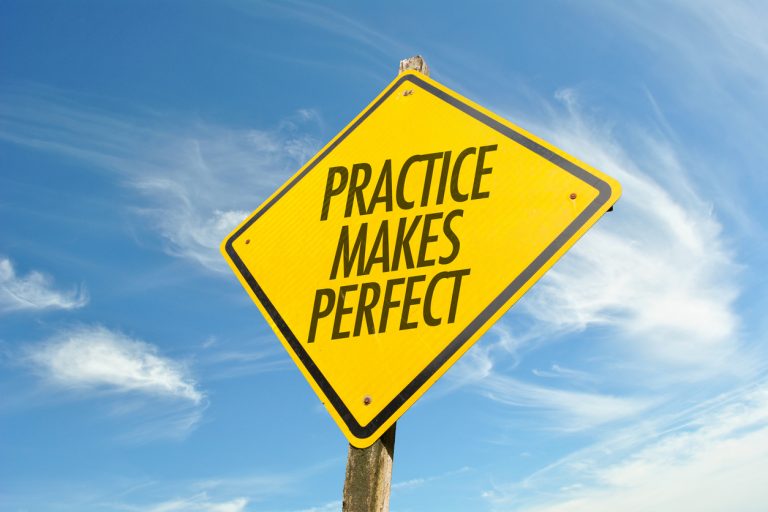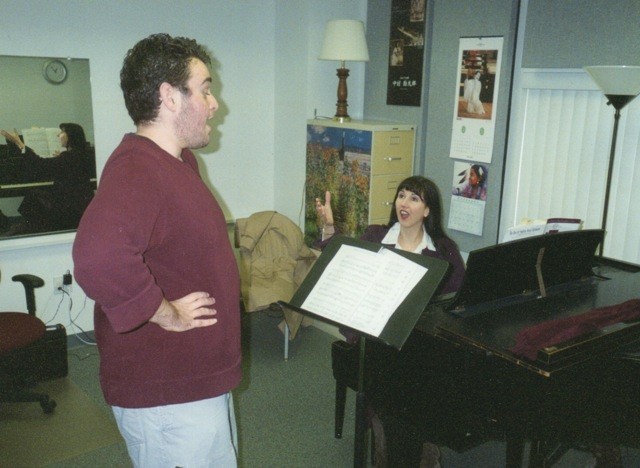Improve Your Singing Diction Now! (Part One)
Have you ever listened to a song on the radio over and over, and still couldn’t understand all the words? Did you go to a live performance and think, “okay, now for sure I’ll hear the words this time?”— and still couldn’t make it out? Did you finally have to look up the words online or on the jacket of the CD or album to figure out the lyrics? (yes, some of us still have CDs and record albums!). That’s because the singer has issues with his or her singing diction. Let’s take a good look at this oh-so-important aspect of your singing…
The Merriam-Webster Dictionary defines diction this way: “Pronunciation and enunciation of words in singing.” It sounds pretty cut-and-dry, right? How hard can it be to express your words clearly when you sing? And yet, diction issues not only make it hard for your audience to understand the lyrics as you perform your song. The even bigger problem is that improper diction habits actually get in the way of your vocal production! Poor singing diction causes major problems in the voice— including vocal tension, loss of breath control, inferior tone quality and bad intonation (the ability to sing in tune). Ugh! Who wants that?! We’ll explore this second issue now— and discover its solution!
Four Top Tips for Great Singing Diction
I am forever amazed at how changing the way singers approach words in their songs can actually revolutionize their vocal quality, and the ease with which they sing. But so many singers are clueless that this may be the key to unlock the door to their singing problems! Every week one of my voice students say something like, “Why does my voice feel and sound good when I am doing my vocal warm-up exercises, but as soon as I start singing my song, I feel tight and it sounds strained?”. The answer: it’s all in the words, and how you pronounce them while singing! This, my friends, is singing diction.
Tip Number One: Elongate your vowels!!!!
As singers, we have to sing two distinct parts of language— vowels and consonants. The vowels keep your throat open indefinitely, and allow for easy and continuous flow of your breath. If you had enough air, you could sustain a vowel forever. Herein lies your secret weapon to better singing! The longer you are singing your vowel, the more time the voice has to vibrate and correct its resonance (reverberation in the vocal tract), giving you more beautiful tone quality, volume and ease of production.
Obviously, you have to stay within the boundaries of whatever rhythm and duration of notes are in your song melody. But whatever the length of the note is, make it 99.9% the vowel. Here’s an example from the lovely jazz standard, “I Could Write A Book”…
The first line of lyrics reads: If they asked me, I could write a book
You would then isolate the primary vowels in each syllable:
If they asked me I could write a book
Ih Eh Aa Ee Ah U Ah Uh U
If you know the song melody, try singing the phrase on just the vowels (don’t worry if they’re not perfectly accurate right now. Just strive to make them sound as natural in quality as speaking). If you don’t know the melody, just chant it on a single comfortable pitch. This is priming your brain and your voice to focus on the vowels 99% of the time, leaving your throat open for better singing! This is what I call developing a “Singer Brain”.
Good singers look at syllables and focus on the vowels, not the consonants. This runs counter to how we normally think about language, especially English. If you’ve ever seen the type of shorthand that drops out all the vowels, you can still totally read it and know what each word is! Great skill for an office memo, bad skill for a singer! Remember– the Golden Rule of Singing Diction is: s-t-r-e-t-c-h every vowel!
Tip Number 2: Place the ending consonant(s) of each syllable on the beginning of the NEXT syllable!!!
“Huh? What does she mean by that?” you may ask. I’ll explain. It’s simple, and elegant, and makes all the difference in the world! When we read words normally on paper, most English words (and even words in other languages) have a consonant, or combination of consonants, that appear at the end of each syllable, and usually at the end of the word. If you sing the words the way they are written on paper, the consonants will keep stopping your breath and interrupting the flow of your singing. It’s like driving your car and stepping on the brake every few feet!
But there’s a great way to solve this issue! Take the ending consonant (or consonants, if there are more than one) off the end of a syllable, keep sustaining your vowel, and only sing the removed consonant at the beginning of the next syllable. This way, you throat stays open, the voice keeps resonating longer, and you will develop a beautiful legato (smooth and connected) vocal line. Here’s an example, using our lyrics from the song above:
Normal speech: If they asked me I could write a book
Moving the consonant to the next syllable: Notice that the extended lines below mean the extension of your vowel, and the consonant of every syllable is delayed to the start of the next syllable.
I____fthe_____ya_______skedme_______I_______cou_______ldwri_____tea____boo______k
For another good example, see my earlier post: Oh Say, Can You Sing… the Star-Bangled Banner?
This technique takes some practice, but once you get the hang of it, it will feel like your voice has been let out of prison! It will flow and vibrate so much better, and feel freer than it ever has before. Your phrases will have a new energy and forward momentum, and you will sing more expressively, with greater dynamic control.
Do you need to do this all the time? Yes, with a few exceptions. First of all, any time we want to stop the breath intentionally for a lift (a pause with no breath) or to take an actual breath, you can put the consonant on the end of a word to halt the airflow. Also, depending on the song you are singing, there may be places where you want to cut a note short for expressive or stylistic reasons. Remember, as long as you do something on purpose as a conscious style choice, that’s something that should be under your technical control as a singer. But– if something keeps happening to your voice unconsciously while you sing, with no control, that’s just bad technique!
Finally, I don’t want you to get overwhelmed with all four singing diction tips at once, so I’m saving the next two tips for next week’s post. This will give you time to really integrate what you have learned today, and this will set you up for even more success going forward. I always tell my classes– if you never learn anything else about singing diction, just having these first two techniques in your arsenal of singing tools will make a HUGE improvement in your vocal delivery!
Another great plus– these singing diction tips will help your speaking voice and clarity of speech delivery as well. You will become a more powerful and dynamic speaker. Good singing technique and singing diction absolutely translate over to speech! See my very first post on this blog: SPEAK AS YOU SING, SING AS YOU SPEAK







